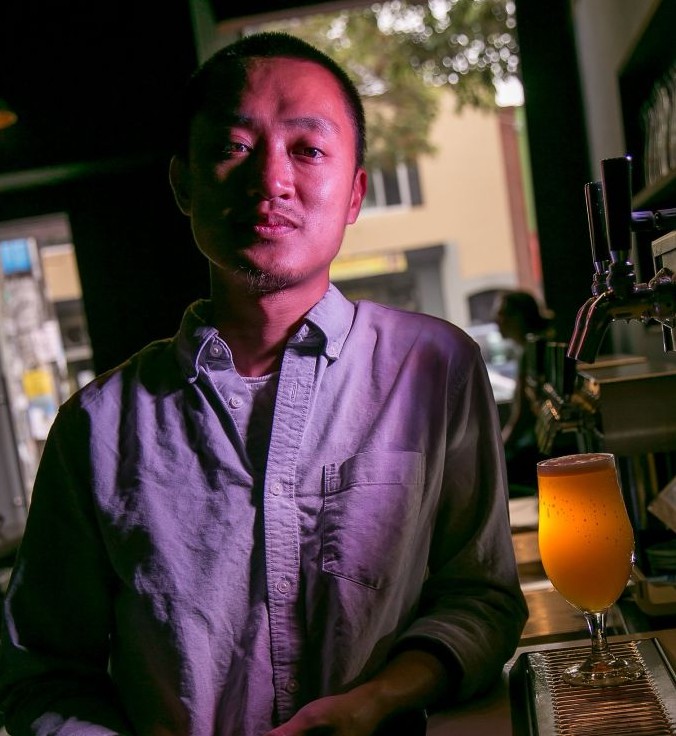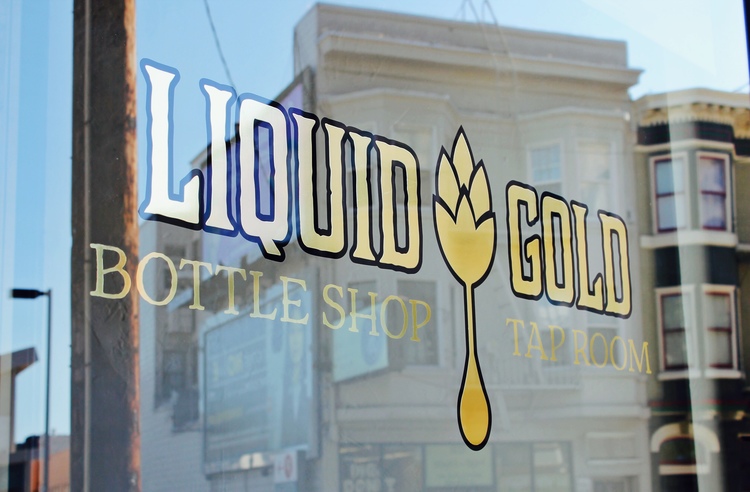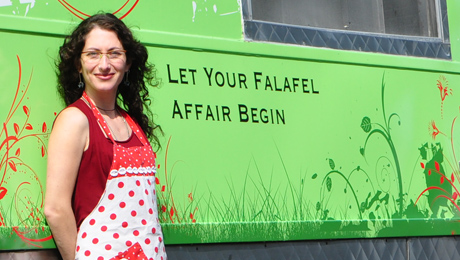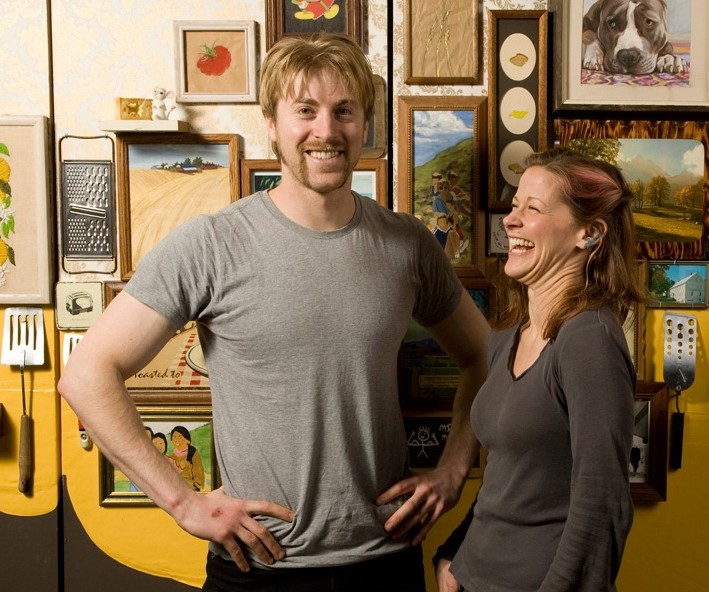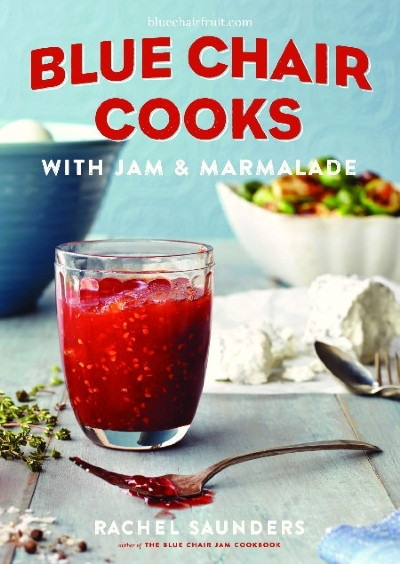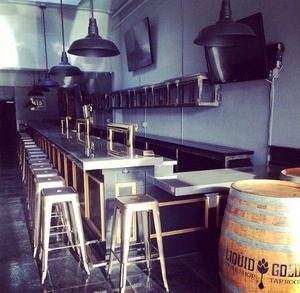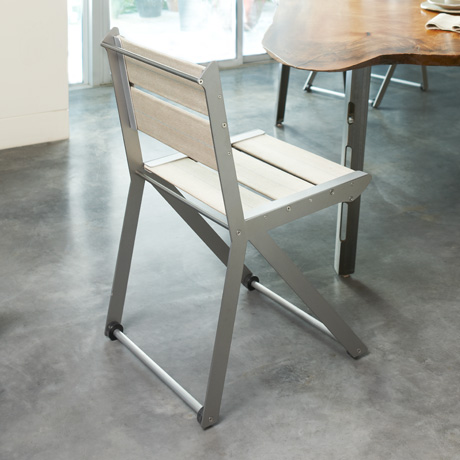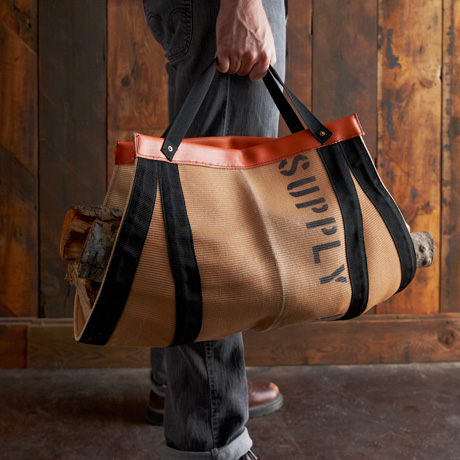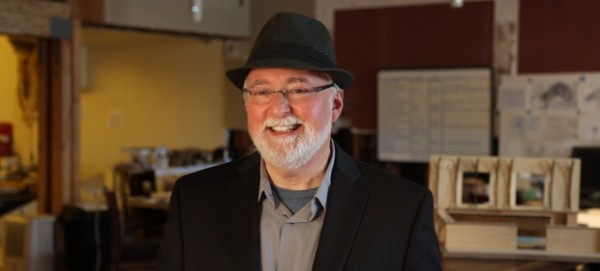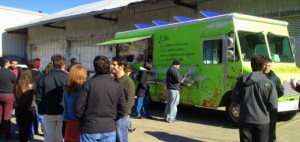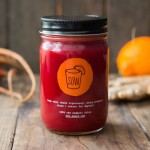The post Launched! appeared first on Paul Terry & Associates.
]]>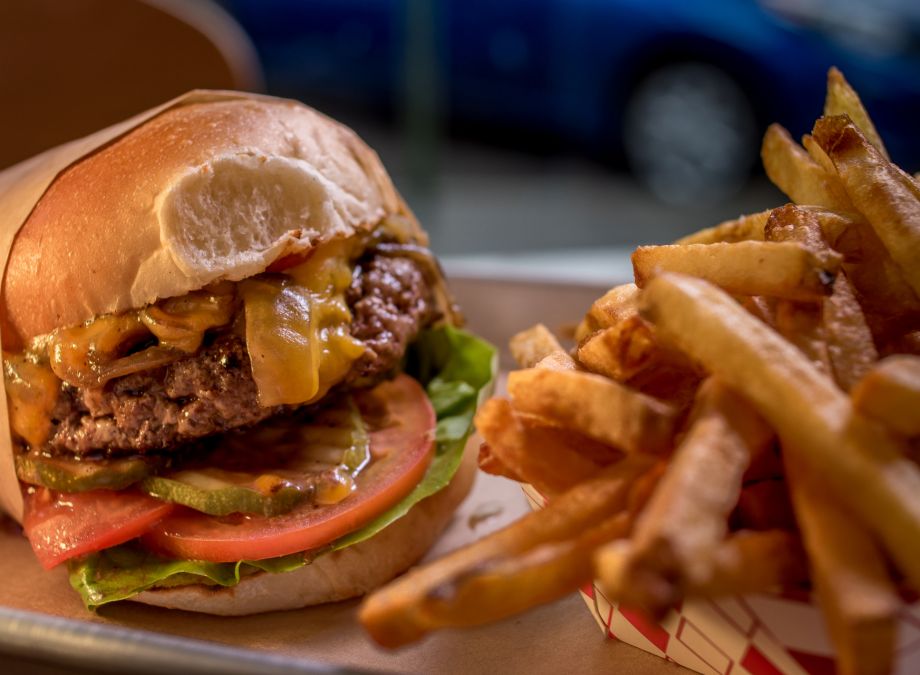
Sean Patrick and his business partner opened a new burger and fries place in San Francisco’s West Portal neighborhood featuring burgers, fries and milkshakes made from 100% organic ingredients sourced primarily from California. (They even have a veggie burger for me!) Check out their recent San Francisco Chronicle review.
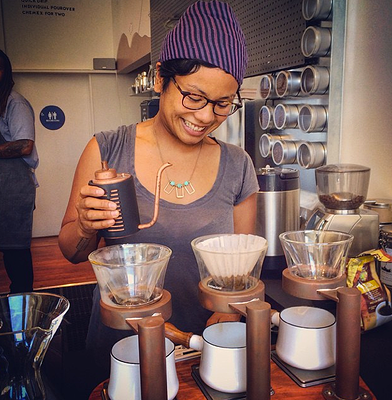
JoEllen Depakakibo just opened a new coffee shop on Cortland Street in San Francisco’s Bernal Heights neighborhood. The curated space features a variety of coffee roasters and other locally made goodies. Check out this recent profile of JoEllen and her new business.

Lindsey Hoell and her brother and sister have launched a line of surf bikinis! They are made in America of strong, stretchy material …and include zippered pockets. Check out their fun website and online store.
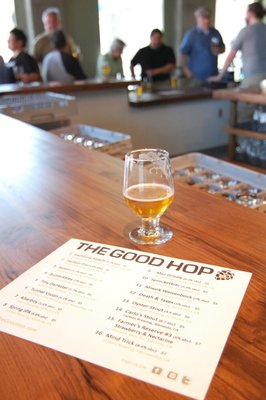
Melissa Myers opened her bottle shop and tasting room on Telegraph Avenue in Oakland, offering hundreds of craft beers from around the world, with mostly local beers on tap. You can enjoy your brew on site or take away, and attend their classes and monthly events.
Hoi Polloi Brewpub and Beat Lounge
Viet Vu opened his brewpub with his brother and wife on Alcatraz Avenue in Berkeley. The pub features a variety of beers, including their own creations, and all beer comes with popcorn drizzled with truffle-oil. Check out this recent San Francisco Chronicle review.
Courtney Cummins has launched Rilla, an online style boutique featuring select clothing, accessories and textiles from independent designers, as well as highly curated vintage pieces.
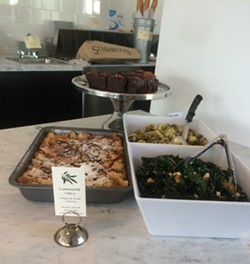
Michele LeProhn opened the doors to her neighborhood restaurant in Oakland’s Laurel district this December — seasonal American comfort food to eat there or to take home. Check out this recent article about Communitē Table in the East Bay Express.
Andrine Smith opened The ReCrafting Co. as a crafter’s resource for quality recycled crafting materials, supplies and tools. The shop also offers crafters a convenient opportunity to recycle their surplus crafting material and supplies on consignment for cash.
Tim Lee’s bottle shop and tap room opened in lower Nob Hill the Fall of 2014. The focus is on locally sourced beers and wines. In November, Liquid Gold made Zagat’s list of the 12 hottest new bars in the United States!
Steve Fox and his team have created Urban Putt, the City’s first and only indoor miniature golf course in San Francisco’s Mission district. It is a playground for people of all ages with organic and locally-sourced food and drink. Thrillist calls Urban Putt “quite possibly the best thing to happen to the Mission.”
The post Launched! appeared first on Paul Terry & Associates.
]]>The post Food Businesses In the News appeared first on Paul Terry & Associates.
]]>Gail Lillian’s popular food truck business Liba Falafel expanded to a brick and mortar location in Oakland this year. The San Francisco Chronicle recently featured a great review of the business.
Renaissance graduate and teacher Heidi Gibson’s and Nate Pollack’s business The American Grilled Cheese Kitchen has reached a milestone — 1 million grilled cheese sandwiches sold in just a little over four years of business. And they are in the process of expanding again!
Rachel Saunders, owner of Blue Chair Fruit Company has a new book coming out this month — Blue Chair Cooks with Jam and Marmalade! It’s all about how to incorporate fruit preserves into your cooking.
And Renaissance graduate, Tim Lee will be opening Liquid Gold on Hyde Street in San Francisco, the city’s newest bottle shop and tap room. The grand opening was Saturday!
Please join PTA in showing your support for local small businesses and these hard-working, passionate entrepreneurs!
The post Food Businesses In the News appeared first on Paul Terry & Associates.
]]>The post Good news for local small businesses appeared first on Paul Terry & Associates.
]]>Judi Henderson-Townsend of Mannequin Madness was recently profiled in the New York Times about her goal to hit a million dollars in revenue.
LauraLe Wunsch of Oxgut Hose Co. was featured in San Francisco Magazine about her line of products made from recycled fire hoses.
Inside Scoop SF profiled Steve Fox of Urban Putt, the Mission District’s forthcoming indoor miniature golf course, restaurant and bar.
Inside Scoop SF also recently profiled local chef Kelsie Kerr, co-author of The Art of Simple Food and owner of Standard Fare, which will be opening in West Berkeley next month.
And after a successful Kickstarter campaign, Wendy Lieu and her sister Susan are opening Socola Chocolatier’s first retail store on Folsom Street in San Francisco in early February.
Please join PTA in showing your support for local small businesses and these hard-working, passionate entrepreneurs!
The post Good news for local small businesses appeared first on Paul Terry & Associates.
]]>The post It’s not too late to shop local appeared first on Paul Terry & Associates.
]]>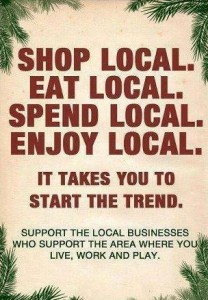
There are many reasons to support locally owned businesses and you can do some of your shopping right from home…even from small and micro businesses. I love supporting PTA colleagues, clients and entrepreneurship students when I shop – these are local business owners who sell great products and services, operate with integrity, and provide excellent customer service.
Here are a few local gift ideas from my list:
- Buy fashionable, fair trade products from around the world from 12 Small Things.
- Give an aspiring cook a class gift certificate from The City Kitchen.
- Find beautiful handcrafted jewelry for a special someone from Corey Egan or Alicia Van Fleteren
- Discover the perfect outfit or toy for a child at Fiddlesticks, or
- Get great women’s running apparel and gear from See Jane Run.
Since my first small business was a food business (the cheese store Cheshire Cheese) and my next small business was a café (Mad Hatter Tea), my gift-giving always includes food… either homemade or locally bought. We are blessed in San Francisco to be surrounded by small businesses making amazing food. How about a box of chocolates from Socola Chocolatiers or Belinda Chocolates, a jam club membership or jam cookbook from Blue Chair Fruit Company, tea from T-We Tea, or plum pudding with brandy butter from Clairsquares? The possibilities are endless.
So, support your local businesses this season and let’s keep our holiday dollars in the local economy. Hit the streets (or go online) and share in the good feeling that your support will bring to local small businesses this year.
The post It’s not too late to shop local appeared first on Paul Terry & Associates.
]]>The post Street Food: A Fresh Start appeared first on Paul Terry & Associates.
]]>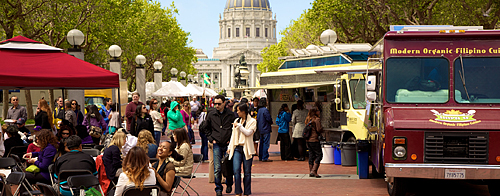
Off the Grid
Last week the San Francisco Board of Supervisors unanimously passed Supervisor Scott Weiner’s food truck reform legislation. After two years of negotiation Weiner was able to achieve a compromise on which both restaurants and food trucks could agree—trucks will now be able to operate on college and hospital campuses and park closer to middle and high schools, but they will have to comply with a 75-foot buffer around brick-and-mortar restaurants.
In his statements last week, Matt Cohen, founder of Off the Grid said, “Every single piece of this legislation was a compromise from both sides. We’re glad about having the process be cleaner, but it’s a wait-and-see approach about how it plays out in practice. I think all stakeholders have that approach at this point.”
Between this new San Francisco food truck ordinance and the California Homemade Food Act, there are a lot of legislative changes affecting local food entrepreneurs right now. The first San Francisco Cottage Food permit was just issued in April to a Dogpatch resident, just a few blocks from my office. It is a different landscape for food entrepreneurs than just a few years ago. Some of my curent clients and students will be impacted by these new laws so I will continue to follow the issues closely.
The post Street Food: A Fresh Start appeared first on Paul Terry & Associates.
]]>The post San Francisco Food Fights appeared first on Paul Terry & Associates.
]]>The current food truck regulations haven’t been working well for either side. If Supervisor Weiner’s new legislation is passed, it would prohibit food trucks from doing business within 50 feet of a restaurant but would also allow food trucks to operate in parts of the city where they’ve been previously banned.
At the PDMA meeting, Supervisor Weiner explained to us that that current rules have made whole areas of the city, including a large portion of the Mission, off-limits to food trucks. He wants to encourage more trucks to congregate in areas like SOMA and the Financial District. The bill would legalize food trucks on all hospital and college campuses and allow trucks to park closer to schools, decreasing the buffer from 1,500 feet down to 500 feet for middle schools and between 750 and 1,000 feet for high schools.
PTA has worked with and taught restaurant owners and food truck owners and we understand the challenges on both sides—the costs, the competition, finding the right location, scalability and market demand. Running a small food business—whether it is attached to one spot or mobile—is very hard work and it is important that our local legislators are listening to business owners’ concerns and supporting small business issues. I appreciate Supervisor Weiner’s efforts to move the conversation forward.
The post San Francisco Food Fights appeared first on Paul Terry & Associates.
]]>The post Home-based Foodies in the Game appeared first on Paul Terry & Associates.
]]>
In January, 2013 the California Homemade Food Act was signed into law, making it legal for people to sell “low-risk foods” produced in their home kitchens. A food entrepreneur who wants to qualify as a Cottage Food Operation must meet a few criteria:
- Produce foods on the approved list,
- Have gross sales this year of $35,000 or less (by 2015 this will go up to $50,000),
- Complete a food processor training course, and
- Have product labels that meet state and federal requirements.
There are more details of course. Note the two categories of cottage food operation:
- Class A operations can only sell directly to the consumer (which can include at community events, farmers’ markets and through CSA subscriptions) and can register with a self-certification compliance checklist.
- Class B operations must be inspected to receive their permit but can then sell to restaurants, retail food stores and food trucks.
Before this legislation became law, you needed to use a commercial kitchen or food processing facility (such as Eclectic Cookery) to legally sell your food product (or join a kitchen incubator, like La Cocina). For many entrepreneurs who are just starting out, testing their food business ideas by renting a commercial facility is cost prohibitive. Now there is a way to start small at home legally.
The success of the now-closed Underground Market in San Francisco is a clear sign of how many people will be able to benefit from this new law and also how many people want artisanal food. With a pick-up in the economy, there should be more customers for a good product… if it is sold effectively and meets the considerations of the target market. It is a great time for micro businesses and home-based entrepreneurs to really test their products, their ability to do the work and their commitment to be small business owners. There’s a lot of new energy out there to support small food businesses and new policies like this Homemade Food Act to stimulate the growth of the industry.
To learn more about the California Homemade Food Act and how to obtain a cottage food operation permit, go to the San Francisco Department of Public Health and the California Department of Public Health websites.
The post Home-based Foodies in the Game appeared first on Paul Terry & Associates.
]]>The post Good Food Dot Com appeared first on Paul Terry & Associates.
]]>There are many new internet tools to support small businesses and many are being created specifically for food businesses. This includes a search engine for food industry jobs (Good Food Jobs), a new entrepreneurial education and online community for mentoring food start-ups (Local Food Lab), an online wholesale service (Buyer’s Best Friend), and a new portal to market and distribute food products directly to consumers (Good Eggs). It is an exciting time to be starting and running a food business!
Many of my students at Renaissance Entrepreneurship Center (graduates of the 14-week Business Planning Class) are taking advantage of these tools. b. street waffles, Black Jet Bakery, Double Dutch Sweets, Leslie Kay Bakery, Mama Tong, Ruby’s Oats, and Sow Juice, as well as two of my clients, Starter Bakery and Suite Foods, are all Good Eggs producers.
For new food businesses, this type of publicity and connection to potential customers is invaluable. Access to markets is key for any small or micro business. Setting up an online store or trying to get into a local retail outlet can be a daunting or competitive proposition.
But if you can prove there is a market, satisfy the marketplace with good services, and build a following through these new online platforms, you just might prove your business model, make it into the mainstream, and develop a sustainable business.
These new internet tools are making it easier for small food businesses to get support, find community and connect with the markets they need to be successful. May they take root and flourish!
The post Good Food Dot Com appeared first on Paul Terry & Associates.
]]>The post Tasty crowd-sourcing appeared first on Paul Terry & Associates.
]]>
jam from Blue Chair Fruit Company
There is now a new crowd-sourcing platform in development specifically for food ventures called yumspring. It is being billed as a place where chefs, bakers, brewers, canners and all other sorts of anti-hunger innovators can connect with people who have an appetite to support new, local, adventurous food entrepreneurs. Check out this 5-minute pitch from yumspring’s founder on food and tech connect, a new blog about the growing food and information technology movement.
The post Tasty crowd-sourcing appeared first on Paul Terry & Associates.
]]>The post Eating Well from Street to Street appeared first on Paul Terry & Associates.
]]>The sunny streets were full of happy people enjoying tasty delights from 85 vendors—including from some of my former students: Gail Lillian of LIBA Falafel, Claire Keane of Clairesquares, Antoinette Sanchez of Endless Summer Sweets, and Neal Gottlieb of Three Twins Ice Cream. What a treat!
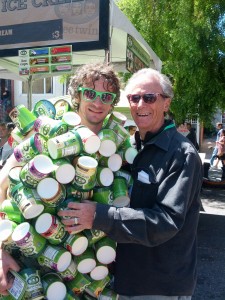
Neal and Paul at SF Street Food Festival
As a small, start-up food business it is a challenge to break into the industry and be successful. Food entrepreneurs can have great ideas and delicious recipes but they also need to afford legal kitchen space and the start-up costs to open their businesses, find a niche, compete for shelf space and break into a crowded marketplace. Motivated entrepreneurs like Gail, Claire, Antoinette and Neal are making it work by renting kitchen space and/or selling out of a food truck. (Neil started very small over 6 years ago and now sells ice cream in almost every state.)
Luckily, food businesses don’t have to jump into business ownership without some support. La Cocina’s non-profit kitchen incubator and programs for low-income, immigrant and women-owned food businesses and Renaissance Entrepreneurship Center’s programs and small business incubator provide valuable training and support. There are other non-profits and businesses sprouting up around the city to help food entrepreneurs and strengthen the local food movement—from the Underground Market and Forage Kitchen, to the new Good Food Merchants Guild and Good Eggs.
City government is also helping to make the climate easier for food start-ups, such as easing regulations for street food vendors and even passing an ordinance to allow community gardeners and city farmers to sell their produce directly to the public on site. And we’re all waiting to see what transpires with the California Homemade Food Act.
It was great to see the success of small street merchants and so many supporters of the Bay Area’s local food movement this weekend. Let’s keep up the support for sustainable food businesses!
The post Eating Well from Street to Street appeared first on Paul Terry & Associates.
]]>